

How to Write a Speech GCSE – Score 9 in English GCSE Exam
Ever pondered ‘How do I start my GCSE English speech?’ or ‘What should I write my GCSE speech on?’ Crafting a compelling speech can be daunting, especially when it’s for your GCSE English exam. This guide will help you navigate the nuances of the GCSE English speaking and listening topic ideas and master the art of speech writing.
What is the GCSE Speech Exam?
The Speech GCSE includes an assessment of students’ spoken language abilities. This assessment is an integral part of the English GCSE exam , where you are required to demonstrate your speaking and listening skills. Most students typically choose from a range of GCSE spoken language topic ideas and present a speech, followed by a discussion with the examiner. This assessment not only evaluates your knowledge of the topic but also the ability to structure your thoughts, use persuasive techniques , and engage the audience.
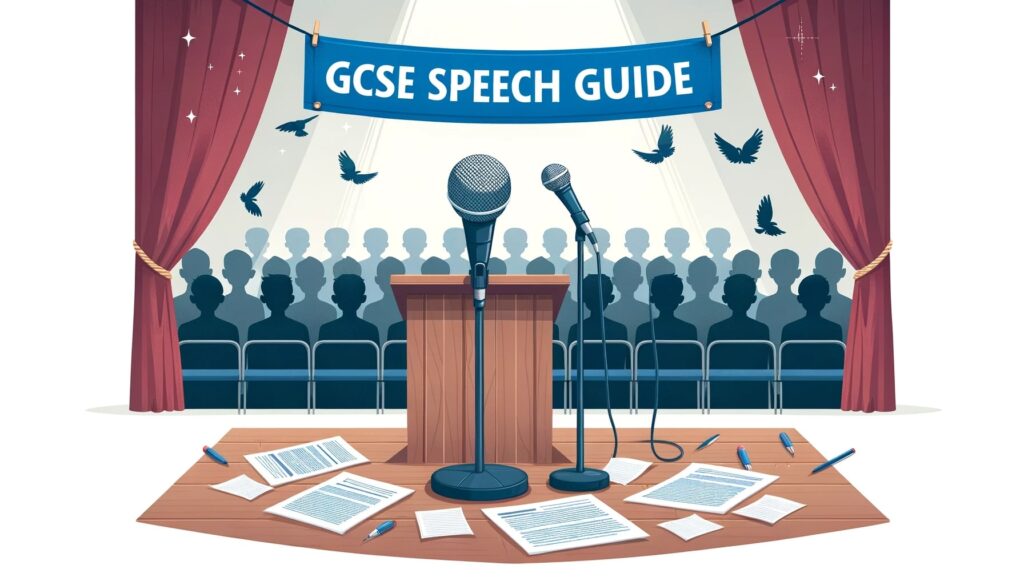
What’s the Good Starting Point for GCSE Speech?
While there is no one-size-fits-all approach to structuring your speech, understanding the basic speech layout can provide a solid starting point. Typically, you’ll want to start with an engaging introduction, followed by 2-3 key points that support your topic, and a compelling conclusion to wrap things up.
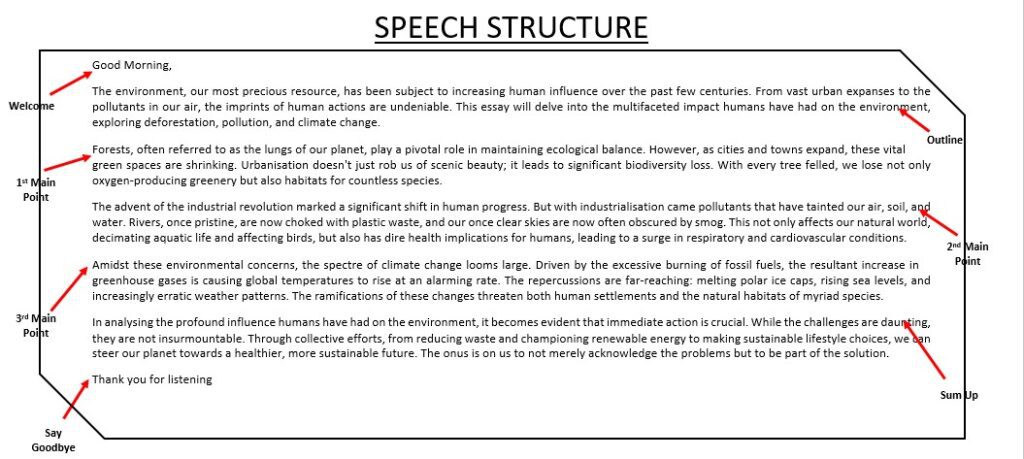
How to Choose the Right Topic For GCSE Speech?
Before you even begin writing a speech, it’s crucial to have a well-defined topic. Your topic sets the tone for your entire speech, so it has to be something you are passionate about and can speak on with authority. Moreover, a well-chosen topic significantly impacts what makes a good speech.
While your GCSE English speaking topic should ideally be interesting to your audience, it should also resonate with your own interests and strengths. This is the time to brainstorm English GCSE speaking ideas . The right topic can not only engage your audience but also allow you to showcase your oratory skills effectively.
Knowing Your Audience
If there’s one factor that can make or break your speech, it’s the audience. Knowing who you’re speaking to allows you to tailor your language, tone, and content to resonate with them effectively. Ask yourself the following questions:
🧐 What does my audience care about?
🧐 What are their expectations?
The better you understand these aspects, the easier it will be to connect and make a meaningful impact, thus further defining what makes a good speech.
Ideas for Speaking and Listening GCSE English
Choosing a topic that resonates with your audience is key. Given the requirements for GCSE speaking exam topics, you may want to consider issues like climate change, social media’s impact on mental health, or the importance of voting. These subjects are not only engaging but also provide ample scope for discussion and argument.
Here are some English Speaking Exam Topic Ideas to Consider:
- Climate Change and Its Global Impact
- Social Media and Mental Health
- The Importance of Voting
- Artificial Intelligence and Ethics
- The Future of Work in a Post-Pandemic World
- The Role of Education in Shaping Character
- Sustainable Living and Consumer Choices
To sum up, here are some tips to consider:
Choose a topic that excites you; your enthusiasm will be contagious.
Make sure the topic is relevant to your audience.
Opt for subjects that are neither too broad nor too narrow.

The Structure of a Good GCSE Speech
A successful speech is more than just a string of words; it’s a well-thought-out sequence designed to captivate your audience. Here, we’ll delve into the speech structure and discuss how to structure a speech for maximum impact. A typical speech will consist of an introduction, body, and conclusion.
Introduction: Capture attention and state your main point.
Body: Build your argument or narrative with supporting evidence.
Conclusion: Summarise the key points and finish with a strong statement or call to action.
How do I start my GCSE English speech?
You have but a few precious moments to seize your audience’s attention. The way you start a speech can dictate whether your audience tunes in or zones out. The opening sets the tone and context for everything that follows, making it an integral part of how to open a speech effectively.
Dos and Don’ts of Starting Your GCSE Speech
- Open with a Provocative Question: Pose a question that challenges common beliefs or perceptions. For instance, “What if I told you that everything you knew about climate change was wrong?”
- Share a Personal Story: Relate an anecdote or personal experience that ties into your main topic. “Three years ago, I stood at the edge of a shrinking glacier, and that moment changed my perspective forever.”
- Use a Relevant Quote: Start with a powerful quote from a renowned figure that encapsulates the essence of your speech. “As Martin Luther King Jr. once said, ‘Our lives begin to end the day we become silent about things that matter.'”
- Present a Shocking Statistic: Share a surprising fact or figure that grabs attention immediately. “Did you know that every minute, the equivalent of one garbage truck of plastic is dumped into our oceans?”
- Paint a Vivid Picture: Use descriptive language to create a vivid scene or imagery in the minds of your audience. “Imagine a world where forests no longer exist, where silence replaces the chirping of birds.”
- With an Apology: Avoid starting with phrases like “Sorry for…” or “I’m not an expert, but…”. It undermines your credibility from the get-go.
- Using Clichés: Starting with overused phrases like “Webster’s dictionary defines…” can come off as uninspired.
- Being Too Broad or Vague: Avoid generic openings like “Today, I want to talk about life.” It doesn’t give the audience a clear sense of direction.
- Overloading with Information: Avoid bombarding your audience with too many stats or facts right at the start. It can be overwhelming.
- Being Negative or Confrontational: Starting with a confrontational tone, such as “Most of you probably won’t agree with me…” can put the audience on the defensive.

Maths | English Tutor
Student at UNIVERSITY OF CAMBRIDGE
£20 Per session
Types of Speech Starters
So, what makes an opening memorable? There are numerous speech starters that can serve as a strong foundation for your talk. Here are a few tried and true methods:
Start with a provocative question to engage your audience’s curiosity.
Use a relevant quote that encapsulates your message.
Kick off with a shocking fact or statistic that supports your argument.
for instance
- Start with a Provocative Question: Engage your audience’s curiosity right from the outset. For instance, “What if I told you that by 2050, there could be more plastic in the ocean than fish?”
- Use a Relevant Quote: Begin with a powerful quotation that encapsulates the essence of your message. Consider using, “Nelson Mandela once said, ‘Education is the most powerful weapon which you can use to change the world.'”
- Kick off with a Shocking Fact or Statistic: Share a surprising piece of information that supports your argument and grabs immediate attention. For example, “Recent studies reveal that an alarming 70% of young adults experience social media-induced anxiety.

Tailoring the Opening to GCSE Criteria
For students particularly interested in GCSE speaking exam topics, it’s crucial to note that examiners look for a range of specific elements in your opening. These can include clarity of expression, engagement with the audience, and a clear outline of what the speech will cover.
How to Structure My GCSE Speech?
A well-structured speech isn’t just a nicety—it’s a necessity. Especially when it comes to GCSE English, having a well-organised flow of ideas is pivotal to engaging your audience and making your points hit home. The way you structure your speech impacts not just its effectiveness but also how smoothly you can deliver it . When we talk about structure in the English language, we’re referring to the arrangement of your introduction, body, and conclusion, as well as the logical progression of your arguments.
Common Structural Techniques in GCSE English
There are several structural techniques in GCSE English that can amplify your speech’s effectiveness. For example:
- Repetition :Reinforcing key points by repeating them helps to keep your audience engaged.
- Tripling : Enumerating three related points or arguments can make your speech more memorable.
- Rhetorical questions : These engage the audience and provoke thought, without requiring an answer.
- These are some of the tried-and-true structural techniques GCSE students can employ to enhance their presentations.
How Structure and Language Interact?
The marriage between language and structure is a match made in rhetorical heaven. Your language choices should serve your structural design and vice versa. For example, if you’re using tripling, you’ll need to select words or phrases that have a similar tone or rhythm to create a sense of unity. By having your English language structure techniques complement your chosen words, you’re setting the stage for a cohesive and engaging presentation.
Implementing Structural Techniques for GCSE Criteria
How do these techniques match up with GCSE criteria? To excel in GCSE English , you’ll need to demonstrate an adept use of a range of structural devices. Whether it’s crafting a compelling introduction or providing a powerful conclusion, these structural elements are integral in showcasing your understanding of the English language structure techniques required for this level of examination.
Why Language Matters in GCSE English?
You’ve probably heard the phrase, “It’s not what you say; it’s how you say it.” Well, when it comes to your GCSE English speech, both matter immensely. Your choice of words and how you string them together can captivate your audience and leave a lasting impression. Employing the right GCSE English language techniques is paramount in this regard.
The Essentials of Rhetorical Devices
Rhetorical devices are the tools of the trade when it comes to effective speech writing. These include metaphors, similes, and alliteration, among others. Familiarising yourself with these techniques in the English language will enable you to elevate the quality of your speech. By doing so, you’re more likely to meet and perhaps even exceed GCSE language techniques expectations.
Crafting Sentences for Maximum Impact
The structure of your sentences can significantly influence the power of your speech. Consider varying sentence length to maintain interest, employing short, impactful sentences for key points and longer, more complex ones for detailed explanations. These are among the essential English language techniques for GCSE that you’ll want to master.
Practical Examples of Effective Structure
To solidify your understanding, consider these real-world examples:
Martin Luther King Jr.’s ‘I Have a Dream’ speech is an excellent study in effective repetition and emotive language.
Winston Churchill’s ‘We Shall Fight on the Beaches’ uses tripling to emphasise Britain’s determination during WWII.
Both examples can be adapted to meet GCSE standards, offering invaluable lessons in how to effectively employ structural techniques.

How to End My GCSE Speech?
Every great GCSE speech deserves a powerful finish. Your conclusion is the final impression you’ll leave on your audience and the examiner, so it’s vital to get it right. Whether you’re discussing GCSE spoken language topic ideas or any other English GCSE speaking exam topics, your conclusion should encapsulate your main points and leave a lasting impression. Here’s how:
Reiterate Key Points
Quickly recap the main arguments or insights from your speech’s body. This helps solidify your message and reminds the audience of your core GCSE English speaking and listening topic ideas.
End with a Bang
A thought-provoking statement, a call-to-action, or a powerful quote can provide that final punch. Wondering how to end a speech in a way that lingers? Think of a statement that encapsulates your entire speech’s essence.
Here are examples:
- Thought-Provoking Statement: “In a world driven by screens, it’s our humanity that keeps us connected.”
- Call-to-Action: “Let’s pledge to unplug for an hour each day and reconnect with the world around us.”
- Powerful Quote: “As Albert Einstein once said, ‘I fear the day that technology will surpass our human interaction. The world will have a generation of idiots.”
Relate to the Bigger Picture
Connect your GCSE speech ideas to broader themes or global issues. If you discussed technology’s impact on mental health , perhaps conclude with its overarching role in modern society.
Engage and Involve
Pose a final question or challenge to your audience. It could be related to English spoken language topics or any other theme you’ve explored. By involving your audience, you ensure they remain engaged even after you’ve finished speaking.
Use Language Techniques
Integrate GCSE language techniques and English language techniques GCSE standards advocate for. A sprinkle of speech techniques, perhaps a rhetorical question or a vivid imagery, can elevate your conclusion.
Understanding language techniques is more than memorising definitions, it’s about seeing the powerful role they play in shaping narratives and evoking responses. From the dramatic irony of Shakespeare to the poignant metaphors in modern poetry, these tools are the backbone of effective communication in literature.
Explore Our Comprehensive Guide
In this introductory overview, we cover a range of language techniques that every student should be familiar with:
- Metaphor – Dive deeper into the art of implicit comparison and discover how language techniques colour narratives.
- Alliteration and Assonance – Feel the rhythm and flow these sound devices inject into poetry and prose, showcasing effective language techniques .
- Personification – Bring inanimate objects to life with our insights into personification, a classic example of engaging language techniques .
For those interested in a detailed breakdown of each technique, including examples from classical and contemporary works, check out our full guide on gcse language techniques . Here, you’ll find expert analysis, detailed examples, and thoughtful commentary that will prepare you for your exams and beyond.
Call-to-Action
Whether it’s a plea for change, a challenge, or a simple request for reflection, ending with a clear call-to-action gives your audience a direction post your speech.
Tip: Remember, while it’s essential to know how to write a good speech, it’s equally crucial to know how to wrap it up effectively. Your conclusion should resonate with the speech structure and content, ensuring a cohesive and memorable presentation.
In essence, your conclusion is not just a summary; it’s your final chance to make an impact, to inspire, and to be remembered. Craft it with care, and your GCSE English speech will undoubtedly stand out.
GCSE English Past Papers
Navigating the road to GCSE English excellence requires not just hard work but also smart strategies. One of the most effective methods for ensuring you’re well-prepared for exam day is the use of past papers . This blog post delves into why past papers are an indispensable resource for both students and teachers.
Past papers offer a wealth of benefits, from familiarizing you with the exam format and question styles to improving your time management skills during the test. Gain insight into the types of questions that frequently appear, understand the marking scheme better..
Whether tackling AQA, Edexcel, OCR, or Eduqas exam boards, we’ve compiled every available past paper to give you a comprehensive practice tool. Practising with these papers not only boosts confidence but also sharpens English language skills, setting on a path to achieving top marks.

Ready to Ace Your GCSE Speech?
The GCSE is a pivotal milestone in one’s academic journey. Excelling in your GCSE English speech can significantly boost your overall grade, making it essential to get it right. While this guide provides a comprehensive overview, personal guidance can make all the difference.
Preparing for your GCSE revision can be daunting, but you don’t have to face it alone. At Edumentors, the expert tutors have not only aced their GCSEs but also possess the insights to guide you towards success. Once anxious about her speech, she achieved top marks and is now furthering her studies at University of St. Andrews. Why not explore her journey? Schedule a complimentary introductory session with her today and discover the perfect mentorship match for your GCSE journey.
The standout feature of Edumentors? Their tutors hail from the UK’s top universities, bringing a wealth of knowledge, experience, and best practices to the table. They understand the nuances of the GCSE, the expectations of examiners, and the techniques that can set your speech apart.
So, why navigate this journey alone when you can have an expert by your side? Whether it’s mastering the art of speech writing or preparing for other aspects of the GCSE exams, Edumentors is your gateway to excellence.
Take the leap. Reach out to Edumentors and ensure your GCSE speech isn’t just good, but exceptional.
Make a GCSE Speech Finally, the moment has come for making a speech . This is where all your hard work pays off. Keep in mind all the elements we’ve discussed—from structure to language techniques. Try to maintain eye contact with your audience, employ strategic pauses for effect, and remember to breathe. A well-prepared speech, delivered with confidence, can make all the difference in your grades and in how you are perceived.
- GSCE Speech
- Speech GCSE

How to Help Your Child With Math

The 7 Benefits of Learning Online You Didn’t Know
Find a tutor.
Online tutors from top UK universities
Recent Posts

We are educating children from 11 different countries
Fill out this form to get matched with a tutor & book a free trial
Get matched with a tutor & book a free trial.

Consult with expert and request free trial session
Request was sent
Thank you for submitting the form. One of our team members will be in touch with you soon
Speeches are usually designed to persuade the audience or sometimes even inspire the audience. Good speeches are not boring and will use lots of emotive language as well as rhetorical techniques.

What is contained in a speech?
- Addresses the audience directly (says ‘you’ or ‘we’ ) to motivate action or support.
- E.g. Rhetorical questions - ' Should you good people have to put up with this?' .
- Have one or two clear arguments that they link their paragraphs back to.
- A mixture of short and long sentences so that the listener keeps paying attention.
- E.g. ' Thank you for listening' .
- A strong conclusion to motivate action.
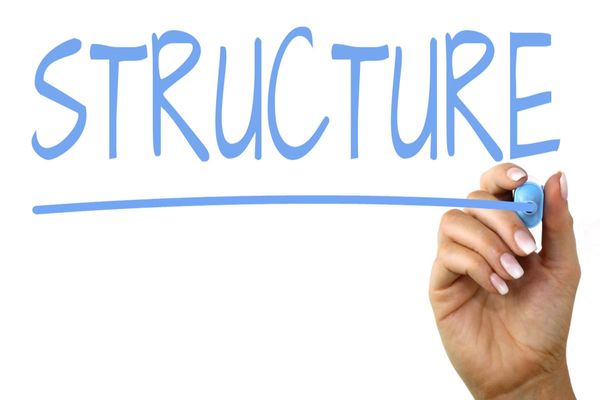
How to write a persuasive speech?
- Persuasive speeches need a structure that allows the audience to remember their message and be motivated to act upon it.
- Having a key message and a peak or climax in a speech can create momentum, which excites the crowd. Things that are emotive are remembered more easily.

Tips for writing speeches
- Speeches are presented, instead of read like a book.
- This makes the literary techniques like alliteration, rhetorical questions, sibilance, onomatopoeia, repetition, and rule of 3 more powerful.
- Try reading each paragraph in your head after writing it.
1 Key Terms
1.1 Key Terms
1.1.1 Key Terms - Nouns, Verbs & Sentence Types
1.1.2 Key Terms - Words, Sounds & Language
1.1.3 Key Terms - Images, Symbols & Mood
1.1.4 Key Terms - Other Techniques
1.1.5 End of Topic Test - Key Terms
2 Language Techniques
2.1 Language Devices
2.1.1 Metaphors
2.1.2 Similes
2.1.3 Metaphors & Similes HyperLearning
2.1.4 Personification
2.1.5 Pathetic Fallacy
2.1.7 Oxymoron
2.1.8 Hyperbole
2.1.9 Alliteration
2.1.10 Sibilance
2.1.11 Onomatopoeia
2.1.12 Emotive Language
2.1.13 All Language Devices
2.1.14 End of Topic Test - Language Devices
2.2 Writing Structure
2.2.1 Narrators
2.2.2 Paragraphs
2.2.3 Tense
2.2.4 Present vs Past vs Future
2.2.5 Foreshadowing
2.2.6 Structure
2.2.7 End of Topic Test - Writing Structure
3 Paper 1: Reading
3.1 Structuring Your Answer - Section A
3.1.1 Overview - Section A
3.1.2 Answering Question 1
3.1.3 Answering Question 2
3.1.4 Exam-Style Questions - Paper 1: Reading
3.1.5 Answering Question 3
3.1.6 Answering Question 4
3.1.7 End of Topic Test - Section A
3.1.8 Exam-Style Questions - Paper 1: Reading
4 Paper 1: Writing
4.1 Structuring Your Answer
4.1.1 Overview - Section B
4.1.2 Answering Section B
4.1.3 Answering Section B - Checklist of Techniques
4.1.4 End of Topic Test - Writing Section
4.1.5 Exam-Style Questions - Paper 1: Writing
5 Paper 2: Reading
5.1 DAFORESTER
5.1.1 Direct Address
5.1.2 Alliteration
5.1.3 Facts
5.1.4 Opinions
5.1.5 Repetition
5.1.6 Exaggeration (Hyperbole)
5.1.7 Statistics
5.1.8 Triples (Rule of 3)
5.1.9 Emotive Language
5.1.10 Rhetorical Questions
5.1.11 End of Topic Test - DAFORESTER
5.2 Structuring Your Answer
5.2.1 Overview - Section A
5.2.2 Answering Question 1
5.2.3 Answering Question 2
5.2.4 Answering Question 3
5.2.5 Exam-Style Questions - Paper 2: Reading
5.2.6 Answering Question 4
5.2.7 End of Topic Test - Section A
5.2.8 Exam-Style Questions - Paper 2: Reading
6 Paper 2: Writing
6.1 Structuring Your Answer
6.1.1 Overview - Section B
6.1.2 Answering Section B - Punctuation & Plans
6.2 Types of Writing
6.2.1 Article
6.2.2 Essay
6.2.3 Leaflet
6.2.4 Letter
6.2.5 Speech
6.2.6 Review
6.2.7 Travel Writing
6.2.8 Diaries & Journals
6.2.9 End of Topic Test - Types of Writing
6.3 Writing to...
6.3.1 Writing to Inform
6.3.2 Writing to Inform - Example
6.3.3 Writing to Explain
6.3.4 Writing to Explain - Example
6.3.5 Writing to Persuade
6.3.6 Writing to Persuade - Example
6.3.7 Writing to Argue
6.3.8 Writing to Argue - Example
6.3.9 Writing to Persuade vs Writing to Argue
6.3.10 Writing to Advise
6.3.11 Writing to Advise - Example
6.3.12 End of Topic Test - Writing to...
6.3.13 Exam-Style Questions - Paper 2: Writing
Jump to other topics

Unlock your full potential with GoStudent tutoring
Affordable 1:1 tutoring from the comfort of your home
Tutors are matched to your specific learning needs
30+ school subjects covered

How to write a GCSE English Speech: Your 2025 Exams Guide
Table of Contents
It’s a part of the GCSE English Language syllabus that fills most students with dread… public speaking.
But preparing for your GCSE English speech shouldn’t be daunting! It’s generally only five minutes long, and you can normally speak about pretty much anything you want. Think of it as a chance to let your passion, interests and creativity shine.
With the right approach to writing your speech, you’ll deliver a powerful and engaging presentation. In this guide, we’ll talk you through the key steps to crafting an outstanding speech – drawing on our expert insights, official mark schemes and examiner preferences.
Ready? Let’s talk.
How do you write a good GCSE English speech?
Writing a fantastic GCSE English speech involves several important elements. You’ll have to think about your audience, choose a compelling topic and research it thoroughly. Once you’re writing, you should organise your arguments effectively and select appropriate yet impressive vocabulary to persuade your audience.
So, how do I start writing my speech?
Let’s break down each of these components and how to start writing.
How to write a powerful speech: 8 top tips
1. mind-map your ideas.
Begin by jotting down all your ideas without worrying about order or relevance. Think about what interests you and what will capture your audience’s attention.
Your teacher might give you a steer, but consider current events, personal experiences and topics you’re passionate about. This mind-mapping session will help you generate a pool of ideas.
2. Refine your topic
Once you have a list of ideas, narrow it down to one topic. If you’re passionate and well-informed, your enthusiasm will shine through and make your speech more convincing.
Ensure your topic is specific enough to be covered in the time allowed – but broad enough to provide substantial content.
3. Research thoroughly
Before creating an outline, gather some initial information on your chosen topic. Look for credible sources, interesting facts, real-life examples and diverse perspectives or quotes from experts.
Only select the most compelling evidence to support your main points. This will help you understand the depth and scope of your topic and provide a solid foundation for your arguments.
4. Create an outline
Now it’s time to organise your ideas into a clear and logical outline. Decide on the main points you’ll cover and the evidence or examples you’ll use to support them.
An outline serves as a roadmap for your speech, helping you cover all the necessary points in an order that makes sense. Typically, your speech should have an introduction, a body and a conclusion (we’ll cover structure in the next section).
5. Understand your audience
Adjust your language and examples to suit your peers and teachers. Consider their interests, experiences and what might resonate with them – and tailor your writing to match. For instance, you could use humour, emotional anecdotes, relatable stories or surprising facts to grab their attention.
6. Use persuasive language
By this, we mean plenty of rhetorical devices. You could use repetition and alliteration to emphasise key points, rhetorical questions to provoke thought, or hyperbole and emotive language to connect with your audience.
A great speech is all about painting pictures with words. Just ensure your message is always clear, and avoid technical terms unless they’re absolutely essential and clearly explained.
7. Draft and revise
Write a complete first draft without worrying too much about perfection. Just focus on getting your ideas down.
Then it’s time for editing and polishing. Look for areas where you can improve clarity, coherence, and impact. Pay attention to grammar, punctuation and word choice – reading your speech aloud to catch any awkward phrasing.
8. Practise your delivery
Rehearse regularly in the weeks before your speech. Focus on your pacing, intonation and body language to make your delivery smooth and natural.
Perform your speech to friends or family and ask for constructive feedback. Teachers often appreciate a “TED Talk” delivery. So if you’re unsure what this means, watch a few videos on YouTube .
Essentially, you should focus on a clear, engaging and confident presentation. So use body language to your advantage. Your gestures, facial expressions and movements all enhance your speech. Engage your audience with plenty of eye contact and vary your voice. Think about switching up your pitch, pace and volume to maintain interest and emphasise points.
A note on assessment criteria..
As well as these general tips, it’s vital to understand the assessment criteria you’re working with. Thankfully, this is similar for all the main GCSE exam boards . You can find an example here .
In addition, AQA has published some super helpful notes and guidance . While these notes are aimed at teachers, they show what examiners look for in a speech – including your content, structure, delivery and responses to questions. For instance, they suggest a 1-5 marking scale for the following questions:
- Did the start get your attention?
- Was the purpose for the talk clear?
- Were the examples/details relevant/interesting?
- How well did they hold your attention?
- Did they end well/clearly?
- How effectively did they respond to questions?
If you’re preparing for GCSE exams, don’t miss our guides to grade boundaries and percentages , the GCSE grading system and your post-16 choices once you’ve finished exams.
How should you structure a GCSE English speech?
To deliver a powerful GCSE English speech, structuring your speech is essential.
Start with a strong opening to capture your audience’s attention. This first sentence could be a powerful quote that relates to your topic, a startling fact that intrigues and provokes thought, or a personal anecdote that creates connection with your audience.
Your opening sets the tone and primes your audience for what’s to come, so make it count.
When it comes to the rest of your speech, organise your content into three main sections: the introduction, the body, and the conclusion. Each section should flow smoothly into the next, guiding your audience through your argument.
Introduction
In the introduction, greet your audience warmly. Clearly state your topic to set the context for your speech – and make sure you’ve nailed that opening line.
Provide a brief outline of the main points you’ll cover (just a couple of sentences will do), giving your audience a roadmap of what to expect. This helps them follow along and stay engaged throughout your speech.
The body of your speech is where you present your main points in detail. Each point should be clearly defined and supported with solid evidence or relevant examples.
Use clear transitions between points (such as furthermore, firstly, secondly etc.) to ensure your speech flows logically. This helps your audience understand and remember your argument.
In the conclusion, briefly summarise your key points to reinforce your message. Restate the importance of your topic, highlighting why it matters and what you hope your audience takes away from your speech.
End with a memorable closing statement, such as a call to action, a thought-provoking question or a powerful quote. This ensures your speech leaves a lasting impact after you’ve finished speaking.
How do I end a GCSE English speech?
Ending your speech on a high is key to leaving a lasting impression on your audience. Here are some effective techniques to ensure your conclusion resonates.
- Call to action : Encourage your listeners to take specific steps related to your topic (e.g., “Vote Green,” “Buy Fairtrade”). This not only reinforces your message but motivates your audience to engage with real-life issues.
- Powerful quotes : Wrap up with a powerful quote summarising your main points. A memorable quote can leave a lasting impact and give your speech a thought-provoking finish.
- Anecdotes : End with a personal anecdote related to your central theme. Sharing personal stories makes your speech more relatable and emotionally engaging, helping your audience connect on a deeper level.
- Rhetorical questions : Consider leaving your listeners with a rhetorical question. A well-crafted, thought-provoking question can keep them thinking about your topic long after you’ve finished speaking.
Or what about all four? By combining these techniques in your final paragraph, you’ll craft a conclusion that really leaves your audience with something to remember.
How long should a GCSE English speech be?
A typical GCSE English speech is around 4-5 minutes long. This gives enough time to develop your points while keeping your audience engaged. From a practical perspective, it also lets everyone in the class give their speech without taking-up too many lessons!
If you surpass your allocated time, your teacher might remind you to wrap things up. To avoid rushing, practise your speech under timed conditions. Be 100% confident before you stand up, that you can give your speech within the timeframe.
Are you preparing for your GCSE English exams?
By following these guidelines, you’ll be well on your way to writing and delivering an impressive GCSE English speech. Remember, practice and preparation are key. Good luck!
At Achieve Learning, we provide expert 1-1 tuition for GCSE English and Maths as well as academic coaching and reading support . Get in touch with our knowledgeable and friendly team today to discuss your academic goals.
Related Blogs

South West Herts Consortium 11 Plus Exams: Parents’ Guide For 2024 School Admissions

Queen Elizabeth’s School (QE Boys) Barnet : A 2025 11+ Entry Guide

The Henrietta Barnett School Eleven Plus Exams: A 2024 Entry Guide
Put a stop to deadline pressure, and have your homework done by an expert.
How To Write A Speech GCSE Like A Professional
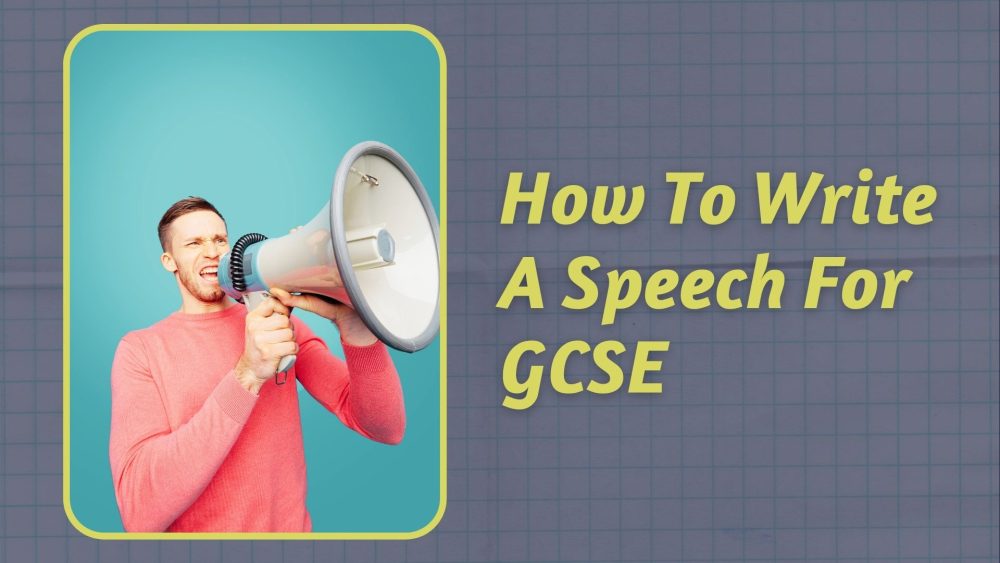
Are you a college or uni student who has been struggling with writing a speech GCSE? Well, we have all it takes to help you learn how to write an address and score top-tier grades. In this guide, we will use a personalized approach showing you steps while at the same time giving you tips and tricks. With this blended approach, you will be able to crack any speech writing assignment in seconds.
Count this as having hit the jackpot with a bonus altogether! Let our English assignment help writers guide you through the entire process:
What Is GCSE?
It is the acronym for General Certificate of Secondary Education. It refers to an academic qualification which the student attains in a given subject. GCSE is mainly taken in Wales, England, and Northern Ireland. However, it can also be taken in other countries, depending on their curriculum.
In most cases, GCSE studies take place over two to three years. Nonetheless, this depends on various aspects, including:
The most tested areas in GCSE include actual writing, general knowledge, and numerical skills. Students will have to take all units for a single subject in one examination series. GCSE is accessible to students in schools, while those re-sitting or in private entries will incur variable fees.
Understanding Speech For GCSE
The GCSE English speech refers to an official verbal presentation that is meant to achieve a specific goal. Speeches are meant to convince or ask a particular audience to buy into your idea. Top-notch speeches will always make the audience pay attention to your subject of discussion. That is why you need to learn how to write a good speech.
Once you master the speech structure, you can compile an award-winning paper that will move masses. Such a paper will give you a sense of satisfaction and make your audience feel like part of the speech.
In most cases, such speeches contain a clear perspective. A dynamic and memorable address will only be possible if you can fully consolidate all the different parts of such an assignment. Students who know how to structure a speech will also take the least time to write such a paper.
Do you want to become a pro in speech writing? Scroll down.
Process of Speech Writing
Before you even think of beginning your speech, there are essential points to consider. I call these ‘the big 4’:
- Nature of your question: Is it persuasive or informative?
- Length of your paper: It will determine the extent of your research
- Objective of the assignment: It will determine the angle you take in the thesis statement
- Time available: This will help you plan accordingly in terms of research and writing
Without these four crucial elements, your speech in the English language will only be a candidate for lower grades. Once you know how you will go about them, it is time to get into the real thing. That is where the format and style come in to convince your reader of your viewpoint.
How To Write A Speech Introduction
The introduction is always the first paragraph of any writing that ushers the reader into your subject matter. For a speech, the opening will entail an introduction of yourself. One would relate this to your head which identifies you. The introduction for a GCSE English speech gives you the privilege of showcasing your introductory skills to any audience.
A catchy introduction always serves as bait for your audience. Once the audience reads it and gets all psyched up, it will stick with you to the next section. What would you do if you were part of an audience seated in front of a boring presenter? Would you have the guts to stick around to the end? I bet you would find something ‘constructive’ to do as the boring man entertains himself on the stage.
That will always be the case if your introduction does not spark any sense of urgency or curiosity in the listeners’ minds. Here are some quick tips for an outstanding introduction:
- It should get the attention of the audience
- It should portray your credible position
- It ought to reveal the topic briefly
- It should have a thesis and a preview.
You can use a story, shocking statement, quote, or testimony to get your audience’s attention. Remember that the impression you create at first will determine how the reader will behave towards your speech to the end.
For example:
‘Greetings, and thank you for taking the time out of your busy schedule to listen. I am Clifford Pound, ready to take you through this great topic on ….’
From the English GCSE speech introduction above, you can note the writer uses polite language and introduces himself with his full name.
Writing The Body Of An English GCSE Speech
The body carries the main chunk of the paper, and as such, a lot goes in here. Some students have great introductions for their speeches but end up messing in the body. That should not be the case for you who are reading this professionally crafted article.
Now, the body of any form of writing comprises of the following:
- Topic sentence
- Explanations to the topic sentences
- Examples of evidence supporting claims made
Having great English GCSE speech ideas will propel you towards a creative and unique paper. If you can recall, we mentioned that speech essays could either be persuasive or informative. Having identified which type you are writing on, you will frame your topic sentences accordingly.
Unlike other forms of writing, a speech uses a different approach. There are rules of speech writing that dictate how the body will look in GCSE speech. Remember that here, you are talking to an audience, and as such, there are several considerations to ensure a smooth conversation.
Ensure that the topic sentences present answers to the thesis statement in the intro. When making your arguments, you should always refer to the information you posted in the introduction. It should guide how you frame your topic sentences. Provide detailed explanations to your topic sentences. Break down the topic sentence into a manageable chunk that the audience can understand better. The speech format also requires that you use a dialogue kind of language to make the audience part of the speech. Use illustrations to demonstrate the point you want to drive home. You can use examples that these people can relate to so that they understand better. Another option would be to use vivid descriptions to describe various aspects of your speech, such as people or events.
These speech features will give your paper a professional look and make it stand out among the rest. Always ensure that the body paragraphs are grammatically correct and smooth flow from one section to another.
Speech Format: Conclusion
The length of different speeches affects the reception and engagement of the audience. The audience might get bored midway for an extended address and overlook the ending because of the fatigue. That is why you should have a strategic conclusion that will either be a portion of food for thought or take home for the audience.
In most cases, conclusions sum up everything you discussed in the body. However, how you do this summary matters a lot. Here are some of how you can end your speech:
Summarizing the main points Repeating some of the phrases or keywords for emphasis Highlight the relevance between the points mentioned and your goal Reinforcing the main idea You can also conclude with a clinching personal anecdote.
Always ensure that the ending captures the attention of every listener so that they can take something home. You can also end with a twist that will leave the readers pondering on what step to take. Some listeners who did not get much in the body paragraphs will have something to carry home if you have a catchy ending.
Evaluation Of A Speech GCSE Exam
When evaluating such a test, the writer’s method of writing and effectiveness in achieving the desired aim are put on a scale. There are various pointers used during evaluation such as:
If you feel certain emotions If the speech informed, persuaded, or entertained the reader Individual methods used
The evaluation also involves stating whether you agree with a particular statement or not. Different teachers may have various evaluation methods, but those mentioned here are standard. There might also be a difference among other schools.
How To Make A Good Speech
There are many ways of writing a winning speech painstakingly. Since we have now examined the structure and format, other vital components will help you ace your address in no time. Have a read:
- Always express your opinion: It is vital to write what you think about a particular phenomenon personally. That will make it easier for you since you are familiar with such experiences. You should ensure that your opinion stands out engagingly.
- Writing from the 1st person: Use ‘I’ as you register to make the audience recognize that whatever you are saying is your opinion. Addressing the audience will help to increase engagement. The nouns you use should bring the audience into the speech and make them ponder how the argument applies to them.
- Add something personal: Using anecdotes and personal details will make your audience relate to you and thus agree quickly with what you say. You can accomplish this by narrating a brief story about yourself that is rather engaging and captivating. Providing quick personal details would also make the audience identify with you. However, remember that this should not take up much of the time; it should be as brief as possible.
- Using emotive language: Appealing to the audience’s emotions is one of the fundamental tenets of any form of writing. With speeches, expressive languages help to paint an accurate picture of your narration. For instance, terms like corrupted or pure would come in place of good or bad. However, over-using emotive language may reduce the effectiveness of all your words. They should only appear sparingly and reasonably.
- Using figurative language: It helps to create a powerful image in the minds of the audience. Symbolic languages come in various forms, including similes, metaphors, and imagery, among others. It would be best to avoid the temptation of over-using them since they may distort the message of your speech completely.
- Using contrast: This technique creates a clash of imagery in the mind of the audience. Contrasting words and phrases in your sentences can help you achieve this effortlessly.
Your focus should always be on the topic at all times. The objective of your speech should dictate the styles and formats to use.
Don’t Feel Like Writing Your Own Speech?
If you still experience challenges, you can always use our comprehensive ‘how to write a speech GCSE template.’ Furthermore, we also provide top-class advice from ENL writers on the various aspects of GCSE speeches. When you choose to pay for assignments , choose us!
Our custom assignment help will help you rise to the ranks of top performers in no time. Get online today and try out our special assistance from English gurus.
Get on top of your homework.
Leave a Reply Cancel reply
Your email address will not be published. Required fields are marked *
25+ GCSE English Speaking and Listening Ideas
In GCSE by Think Student Editor February 11, 2023 1 Comment
One of the most important parts of studying GCSE English Language is that you are tested not only on your written communication but also on your verbal communication. This component of GCSE English Language is surrounding spoken language and exists in the form of a presentation or speech that you have to make.
While this may seem straightforward, there is quite a lot of work that you will have to put into this presentation and a range of factors that you may struggle with. However, the first problem you will have is in deciding what topic you’re going to choose. If you’re struggling to decide, don’t worry, we’ve got you covered.
Continue reading to get some ideas for what you could do for your own GCSE English speech. This article will not only provide you with over 25 great ideas for your GCSE presentation but also give you a few tips on picking your topic.

How to choose your GCSE English Language speaking exam topic
First of all, you need to make sure that the topic you pick will allow you to meet the requirements of your presentation. For this component of your GCSE, you are meant to demonstrate that you can present information and ideas by selecting the right information for your speech and using it effectively and appropriately for the audience you have and the purpose you are using it for.
You are also meant to show that you can speak in Standard English and also that you can respond to any questions or feedback that you are given. If you would like to learn more about this, check out this guide on the government website for more information about the aims and content of GCSE English Language.
These requirements can have quite a big impact on what topic you decide to choose. This is because you will need to make sure that you can do lots of research into your topic area so that you can demonstrate your ability to present information and that the topic is clear enough so that you can show your ability to present ideas.
Other than that, it’s important to remember that your presentation topic is primarily up to you. As long as it is approved by your teacher and otherwise allows you to meet the requirements of your presentation then the choice is yours.
There are many different categories that the topic you choose may fall into. Some of the main ones include social issues, school life or even your personal interests or hobbies. In the rest of the article, you will be able to get some ideas for your presentation centred around these 3 categories.
GCSE English Language speaking exam ideas related to social issues
As previously mentioned, for your GCSE English Language presentation you’re going to be tested on how well you can present ideas and information. One of the best ways to score highly on this is to choose a topic that allows you to present opposing ideas and to reach a conclusion. This is because it would allow you to show that you can evaluate and weigh up the significance of the information you have selected, which in turn shows off your critical thinking skills.
One of the main topics that would allow you to present opposing ideas easily is a topic to do with social issues. This is because they tend to be controversial with people having completely different ideas about how to deal with them.
The only problem with choosing a topic like this is whether you will be comfortable to talk about it in a way that shows that you can present ideas and information appropriately and whether your teacher approves the topic. Due to this, in this section I will take you through some of the ideas to do with social issues that aren’t too controversial and that you can easily talk about in your GCSE English Language speaking exam.
1. Should climate change be taken more seriously by the government?
When thinking about social issues, climate change is arguably one of the best ones to talk about. This is because it pretty much affects everybody and most people have an opinion on it, whether they feel it’s incredibly important or if they feel it’s incredibly not. This makes it something of a safe zone on terms of how controversial the topic is and thus a good topic idea to avoid offending anyone (kind of).
Also, there are so many facts and figures that you can use and manipulate to make your presentation stand out. With these, you can show off your great researching skills, making it one of the best topics you can do as it allows you to do this so easily with statistics and information being readily available.
2. Should zoos be banned?
In recent years, there has been more and more emphasis on exposing animal cruelty and trying to protect animals from being exploited by humans. While this takes many forms, such as animal testing, which can be another great idea for your presentation and will be looked at later. One that you may not quite think of are zoos.
As it is slightly less expected as zoos are generally seen as harmless, this can be a great topic idea. This is because it can feel a lot more original than other topics that may have been done many times before.
Also, as zoos are typically thought of in a neutral or even positive light, exploring both the positives and negatives of them can really show your creativity in presenting ideas. This is because you can use a range of different techniques in your speech to create the most effect while contrasting these opposing ideas and coming to your judgement.
3. Does social media have more drawbacks than benefits?
Social media was only created in 1997, yet since then it has evolved and been transformed into something that we use in our daily lives. For more on this, look at this article by CBS News.
Even if this doesn’t apply to you directly, it most likely will to at least a few of your classmates, which makes it even more of a relevant topic to choose. This could make it more engaging for your audience, which could lead to more question/ feedback at the end of your presentation.
As a result of this, as long as you prepare for these, it could allow to score more highly on the listening and responding requirement of this component. However, it is important to note that this will depend on how your presentation is structured and whether your classmates can freely interact with your presentation.
Another reason why this topic could be great is if you do regularly use social media. T his is because, while you will still need to do the research, you will probably have first-hand knowledge about the advantages and drawbacks of using social media.
This background knowledge can make tackling this topic even easier and may even help to improve your presentation in several ways. To begin with, you may choose to use anecdote alongside your research when presenting your ideas and coming to your judgement . Alternatively, you may want to simply use your pre-existing knowledge as a starting point for your research in order to gain examples.
4. Is animal testing ethical?
As previously mentioned, there has been more emphasis on protecting animals from animal cruelty and from being overexploited by humans. In this, many debates and controversies have been sparked, one of the main ones being to do with animal testing.
Once again, this topic can be a great choice as it is current and relevant. You can even make it even more so by applying this debate to things that apply to you and your audience, which are your teacher and classmates. To do this, you may want to look at particularly businesses or even business industries that particularly do use animal testing or that particularly don’t and what this means for your judgement.
Moreover, this topic can be great in allowing you to show that you can effectively present ideas and information as there is so many different arguments within this debate. This means that you will have to be selective in presenting and fully backing up only your strongest points.
5. Should euthanasia be allowed in the UK?
Euthanasia is quite a heavy topic to tackle, particularly for something like your GCSE English Language speaking exam. However, this arguably makes it more thought provoking and makes how you use language even more important in making the presentation good . Therefore, if you’re looking for a bit of a challenge, choosing a heavier topic, such as this one could be a good idea.
Even more than that, this topic is an incredibly controversial subject that often sparks lots of debate. This is especially as it relates to general ethics, people’s personal beliefs and the need for regulation or some kind of laws surrounding it to decide whether or not it should be allowed.
Once again, this could be good for your presentation as being able to tackle a topic such as this one would show off your ability to present ideas, as per the requirements for this component. Other than just being able to present ideas, to be able to do this topic properly, you would be showing off your critical thinking and analytical skills. This would help you to score better within this component.
6. Should the death penalty be brought back?
Once again, this topic is rather heavy and even a bit dark. However, if you feel comfortable tackling it then it could make for a rather interesting speech.
As with other topics within this category, this topic being so controversial is partially what makes it such a good topic. This is because the ideas that you need to present are quite distinctly opposing views. This allows you to show off high-level skills such as evaluation and analysis in order to present these ideas and come to a conclusion.
Also, you can show off your ability to select the appropriate information due to the extent of facts and data that exists on this topic. This is because you can adapt your entire presentation based on what kind of information you use.
For example, if you use historic data of the death penalty being used in the UK, you could consider why it was abolished in the first place and its ineffectiveness, particularly in later years. Otherwise, you could look at information from other countries that still use the death penalty.
Therefore, this topic is also quite versatile, which can also make it a good pick.
7. Should the voting age be lowered?
As of 2023, the voting age is 18 and you now need some kind of photo ID to be able to vote. For more information about this, check out this page on the government website.
This topic could be a great pick, if you’re interested in young people’s involvement in politics and just politics in general. This is because it allows you to look at the political system in the UK and research into an area which may be relevant to you, especially if you’re under the age of 18.
Not only does this topic area easily allow you to fulfil the research requirements of your GCSE English Language spoken language endorsement, but it will also enable you to be a bit more varied in how you can show off your ability to “present ideas”. This is because instead of just giving you opposing views and ideas to present and to give a judgement on, students also need to present ideas on the specifics of this topic.
By this, I mean that due to the slight vagueness of this topic, you can also present your ideas of what age the voting age should or shouldn’t be lowered to and why this is the case. In this way, you’re able to open up this topic to not only be focused on politics. This means that you can also look into the responsibility and maturity of people under the age of 18 in the case of making decisions, such as voting.
Therefore, this topic can be quite in-depth, allowing you to talk more on the topic to better meet the requirements.
8. Is nature or nurture more influential on someone’s personality?
The nature vs nurture debate is an old one that tends to have an answer something along the lines of “it depends”. Despite this, arguing for one side is most certainly doable, especially for your GCSE English Language speech.
If you’re interested in psychology, then this social issues debate is great for you. This is especially as psychology is the main discipline that this debate comes under, although it may also be applied to others.
To meet the requirements of presenting ideas and presenting information appropriately, you will probably need to rely on case studies and psychologists’ research to base your argument on. As these are likely to be quite advanced and very detailed, this topic could allow you to show off your ability to present information as you will need to be selective to make sure that the information in your presentation is relevant.
9. Is AI dangerous?
Science fiction films and books love to tell stories of AI and robots turning against the humans that created them and taking over the world. While that seems unlikely to happen in real life, it does strike the question on the possible dangers of AI.
With this topic being so up to date and relevant, it can be a great idea to choose as it will be more engaging. This is both for you and your audience, allowing you to benefit from more potential feedback or questions, depending on how this part of the speaking exam will work.
Also, the term “dangerous” can be a bit vague. This gives you the opportunity to look at a range of different ideas for what this actually means and then to present your strongest ones. This allows you to meet the requirement of presenting ideas well.
10. Is vaping better or worse than smoking?
Vaping at least used to be an alternative to smoking, one that was seen as better and a way to quit smoking. However, with the rise of vaping, it’s been made clear that vaping isn’t actually good for you.
Due to this, you can compare vaping and smoking in your presentation and explore the ways in which one is worse than the other. This topic idea would give you lots of opportunity to research with there being a lot of information available about smoking and vaping statistics.
Please note that this topic may be a bit more difficult to get approved due to the problems of both smoking and vaping in schools.
11. Are teenagers addicted to their phones?
You’ve probably heard older people say that teenagers are addicted to their phones. By doing this for your presentation you can present an argument for why this may be true as well as one for why it’s not.
This once again gives you an excellent opportunity to show how well you can present ideas. They also give you the opportunity to analyse and evaluate these in order to reach your conclusion. This can allow you to show your critical thinking skills, which would enable you to score higher.
However, the only problem with this topic idea is that you might fall into the trap of being too comfortable with the topic. Remember that while you can use techniques, such as anecdotes to talk about your own experiences, you will still need to actively do some research in order to meet these requirements.
GCSE English Language speaking exam ideas related to school life
Your GCSE English Language speech doesn’t have to be on a heavy, thought-provoking topic to still be good. As previously mentioned, the main idea of the component is to test your speaking and presentation skills as well as your researching skills.
This means that lighter topics, such as things to do with school, can still be great choices. This is especially as you will be more familiar with these topics and so they’re automatically more relevant to you and your peers.
12. Should detention be banned?
Detentions are probably the most common type of punishment that is used in schools in the UK. For more on this, check out this Think Student article , where you can learn more about the different types of punishments used in the UK.
As a student, you will probably be familiar with how they work and may even have experienced detention(s) yourself. Due to this, this topic can be a great idea as it can make it easier for you to present different ideas as you consider your own idea as well as the opposing view.
Like other ideas that you may be more familiar with, it’s still important to remember that you are also being tested on your ability to present the information and so you need to make sure that you do the research. As this is a topic that relates to both you and your classmates, you could do a survey during your presentation asking your audience, your classmates, if they agree or disagree. You could then to use these results in your presentation.
13. Should students have to wear uniform?
Do you agree that clothing is a form of expression and so everyone should be allowed to wear what they want at school? Alternatively, you may be arguing for the use of uniforms in schools.
This topic can be a great idea for your GCSE English Language speaking assessment as there are so many ideas that you can present both for and against the statement, allowing you to show off your ability to do this.
Also, like the other school related topics, this affects both you and your peers directly. Therefore, this means that you can engage with them more easily, which could help you to indirectly lead the feedback section into questions that you feel more prepared to answer.
14. Should teachers stop giving homework?
Homework is often the source of troubles for students as it can be tedious and boring and it’s even worse if you’ve forgotten to do it. However, there are many reasons why homework may actually be a good thing.
If you take on this topic, you will have the interesting task of deciding whether there are more pros of homework or more cons. As this topic is very light hearted, it gives you the opportunity to bring in presentation techniques, such as humour and potentially other ones, such as hyperbole. Due to this, you can make your presentation higher level, which in turn can help you gain more marks.
15. Should the school day be shorter?
Choosing this topic could be a great idea for you. This is because it is relevant for all involved, including, you and your classmates but also your teacher. This could make it more engaging for them to watch and thus easier for you to react to their feedback or questions.
Plus, if you’re anything like me, you’ve probably felt at times that the school day is way too long. Due to this, this topic could be a great idea as you’ll feel more involved with it, making it easier to present clear ideas, as per the requirements.
However, this topic can still be a bit difficult as you still need to justify your argument, whether you’re agreeing or disagreeing. This means that you still need to do the research to back up your points and to consider the other side of the argument.
16. Should everyone have to study English and maths until they’re 18?
In 2023, the Prime Minister Rishi Sunak announced his plans to have all students study some form of maths until they’re 18. For more on this, look at this page on the government website.
While he’s basing this off his own education, should this be the case for all students? That’s what you get to decide with this topic idea.
Like with all the other topic ideas, you will need to present clear ideas on the pros and cons of this topic. While you will still need to do the research, you can very much tailor your response on your own plans for after GCSEs.
For example, if you’re planning to study some form of maths, whether that is A-Level Maths, Core Maths or something else, you can explain the benefits to you of choosing this option. Whereas, if you’re planning to do an apprenticeship, which would give you the training you need for your role, or any qualification that isn’t related to maths, you could explain why you don’t actually need this.
Remember that you will still need to do research, so you could look into statistics of the number of people who do maths qualifications after GCSEs or even look into the education histories of successful people. This would allow you to better show off your researching and presenting of information skills.
17. Is it important to learn about […]?
This can cover a wide range of subjects or topics, such as history or a specific type of history, such as black history or even wars, to religion or something completely different such as maths or science or even art.
This topic idea can be great as it can relate to you and students around you . However, unlike other options, such as detentions and uniforms, you’re more likely to see disagreement on whether it is or isn’t important to learn something.
This could also be beneficial for the feedback section of your presentation. Therefore, it’s even more important to make sure that your points are clear and well backed up.
Also, this topic idea can provide you with a bit more variety than the other school related ideas. This is because you have complete freedom as to what subtopic you choose and so you can easily tailor it to yourself and your preferences.
Alternatively, you could use this as an opportunity to tailor it to your audience. This would help to show off your ability to be selective in order to present effectively to your audience.
18. Should learning another language be compulsory?
The world is becoming more and more globalised with every passing day, so should learning another language be compulsory. If you already take a language, this topic idea could be great as you should already be familiar with both the pros and cons of language learning and you can apply this to your speech.
As always, research is key in order to meet the requirements for your presentation. However, as language learning can also be done outside of the academic sense, you should be able to find more information about the potential pros of it in general. Then, to consider the drawbacks, you can think about it in the academic context.
You can look at this Think Student article , which goes through the benefits of studying a language, to help you get started.
19. Should Shakespeare be taught in schools?
As part of the GCSE English Literature specification, students have to be taught a Shakespeare play. For more information about this, check out this guide on the government website.
Plus, even before that in Years 7- 9, students will still be taught Shakespeare due to the National Curriculum. You can also learn more about this by clicking on this link to the government website.
Due to this, this topic idea is definitely relevant to all students. Therefore, it can once again be more engaging for both you and your peers to break down this topic. If done right, you can do this to show off your ability to present ideas and information effectively for your audience.
Also, by looking into Shakespeare some of the research may also be easier. This is because in your GCSE English Literature studies, you will probably have needed to look into Shakespeare to get context points for your essays. This means that you can actually do a bit of revision for GCSE English Literature while researching for your presentation.
20. Should phones be banned at school?
Many schools across the UK have banned phones. In this presentation, you would come to a judgement on whether that’s the right decision or not.
With this topic idea, you can talk about the wider context and debates that exist around students, particularly one that are teenagers and phones. For example, you may want to slightly look into the notions of teenagers being addicted to their phones, as mentioned above, or at other issues, such as cyberbullying.
By doing this, you can make your speech more complexed, which in turn can make the ideas you present feel more sophisticated, which can land you higher up the marking criteria.
21. Should extracurricular activities be compulsory?
Doing extracurricular activities can come with a range of benefits, so should they be compulsory? That’s exactly what you will need to explore with this topic.
Once again, you can personalise this topic based on your own experiences. If you already do extracurricular activities, then you can explain the benefits, using anecdote, which is a good skill in presenting. If you don’t do any, then you may present clear ideas for why this is.
Therefore, this topic can be a great idea as implementing a mixture of your research, including data and statistics alongside your personal anecdote can be a great way of doing your presentation. This is because it shows that you can be selective with the information and ideas you have chosen to present.
GCSE English Language speaking exam ideas related to interests
As mentioned above, it’s important to remember that your presentation is yours. One of the best ways to personalise it even more is to make it about something that you’re interested in .
Due to this, making your presentation on any specific interest that you have can be a great idea. These interests may be more general, being topic areas such as art or science. Alternatively, they may be more focused on specific things.
22. Should Banksy be considered a great artist or a criminal?
If you’re interested in art, street art in particular, this topic idea could be perfect for you. This is because you’ll get to look into one of the most well-known street artists in the UK and consider if Banksy should be called an artist at all.
Banksy is often considered a great artist but technically, the art he does is vandalism and so is illegal.
With this topic, you need to be looking at the different sides of the debate, backing them up with facts and coming to your own conclusion. Unlike other topic ideas, the sides of this debate aren’t entirely opposites as Banksy could be considered both a great artist and a criminal.
Due to this, there is greater variation within this topic as you will fully need to decide how to argue this topic. This may also allow you to score better in your assessment. This is due to the fact that if done well, you will be showing off how you can effectively structure your argument to make it more engaging.
23. Are books becoming obsolete?
Less and less people, both young and old, are reading nowadays. Whether this is due to new technologies, such as phones or there simply being a cultural shift, it raises the question of whether books are becoming obsolete.
This topic is great for all the bookworms out there as it gives you a chance to consider your own reading preferences. By this I mean, are you still reading books? If not, what are you reading?
Also, an interesting feature of this topic is that you can define what this question actually means. This is because you need to state whether you are just talking about physical books becoming obsolete or if you’re considering other types as well, such as e-books or audio books.
By doing so, this allows you to demonstrate that you can present ideas clearly as you are giving the ideas and explaining them well.
24. Is […] the best singer/ actor/ etc.?
Whether you’re an absolute Lizzo stan and you want to spend your entire presentation justifying why she’s the best or if you’ve watched every Tom Hanks film and want to use your presentation to argue that he’s the best actor. This topic idea is great if you’re a fan, regardless of who the celebrity is.
This topic idea gives you so much flexibility whether you want to decide who is the best singer, actor, dancer, comedian or even social media influencer. This allows you to personalise it to you and make it more interesting for yourself.
You can even decide on what your criteria is going to be. This can show that you have produced a well thought out presentation as the criteria can act as a structure for you to go through your speech.
25. Was […] the most influential writer/ artists/ etc.?
If you want to talk about a different kind of famous person, such as a writer or artist, you may want to consider how influential they are rather than if they’re the best. This topic idea can prove to be easier for researching than the previous idea as influence can be a bit easier to measure.
For this topic, you could look into any prizes they won, their connections with important people and their positions or roles. If they’re a historical figure, you may also want to look into their legacy and how they’re remembered, for example if there’s a museum.
Like with the previous topic idea, there are so many different people that you could talk about in your presentation with this idea. For artists, you may want to talk about Frida Kahlo, Pablo Picasso, Leonardo Da Vinci or even Andy Warhol. Whereas for writers you may want to talk about Jane Austen, Shakespeare, Charles Dickens or even Khaled Hosseini.
26. Do celebrities get paid too much?
The record amounts that celebrities, especially footballers get can often seem ridiculous. The question that you need to answer in your presentation is whether this is justified and if there should be a limit to how much they make.
This topic can be a great idea as you can use particular celebrities as case studies. This allows you to have a basis for your argument but also to be able to research more easily.
27. Is an influencer a real job?
If you’re interested in social media, you’ve probably come across a few influencers. Influencers are generally seen as not having a real job but is this true?
This topic can be a great idea as you first have to define what a real job actually is. Similarly, to other options, you’ll need to create your own criteria and use this as a basis for your presentation. In this, you can show that you have good presentation skills as you have to be selective to make your ideas and your information fit into this structure.
28. Is gaming good for you?
If you enjoy gaming, you’ve probably been told about how bad it is for you and its dangers. However, with your presentation, you could try to present an upside to gaming. Despite this, you will still need to consider both sides of the argument and also consider the cons.
Once again, being able to show the different sides of the argument can show off your ability to present ideas . Also, as you need to come to a judgment, you will need to evaluate, which is also quite a high level skill.
What attributes make a GCSE English Language speaking exam idea good?
While everyone will have their own opinions on what makes a “good” GCSE English Language speaking exam topic, there are a few key principles that actually make one “good”. First of all, as mentioned above, your GCSE English speaking exam topic needs to allow you to meet the aims and requirements of the assessment itself.
These requirements are as follows:
- Students need to demonstrate their presentation skills in a formal setting.
- Students need to listen and respond appropriately to spoken language.
- Students need to use Standard English effectively in their presentations.
For more information about the assessment objectives of the GCSE English Language speaking assessment, check out this page on the AQA website.
In the above list, all the topic ideas allow you to meet these requirements and so they can be considered as “good”. However, you may have many more ideas for your GCSE English Language speaking presentation, which may still allow you to meet these requirements and so they can be “good” also.
Also, your presentation idea will need to be approved by your teacher. Due to this, the basis of a good idea is one that will get approved by your teacher easily.
Does your GCSE English Language speaking exam idea affect your mark?
First things first, you won’t actually get a mark for your GCSE English spoken language endorsement. This is because you are assessed based on a “competency based” criteria and so you are only sorted into a grade rather than actually being given a mark also. For more information about this, check out this guide by AQA.
While you won’t automatically get a higher grade due to the topic you choose, it could have some impact. This is because the criteria for each grade puts emphasis on the ideas, information and feelings you are presenting.
For a Pass, this would be a straightforward idea, feeling or information. For a Merit, this would be a challenging idea, feeling or information. For a Distinction, this would be a sophisticated idea, feeling or information.
If you choose a more complex and thought-provoking topic, it can make it easier to fit into the Distinction-level criteria of presenting a “sophisticated” idea, feeling or information. Therefore, the topic you choose can have some bearing on the grade you get.
However, it is ultimately down to how you present. This is because if you still present “sophisticated” ideas and information, despite having a very simple topic, you will still be able to reach the Distinction level criteria and vice versa.
Also, there are other criteria for what grade you get other than just to do with how you present the ideas and information. These include how you organise and structure your presentation as well as your ability to listen and to respond.
To learn more about these criteria, please refer to this guide by Pearson Edexcel.
If you would like to find out more about how the English speaking exam effects your overall GCSE English grade check out this Think Student article.
very helpful

- Why Choose Us
- Vision and Mission
- Hire Writers
- How it Works
50+ Popular GCSE Speech Topics and Ideas | 2024
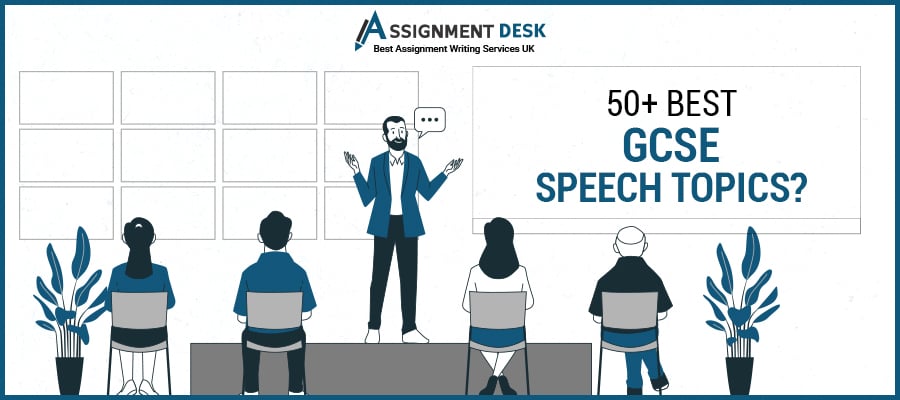
Table of Content
Decide Your Interest Area
Do thorough research, don't be too vague, check the relevancy, seek experts help, english gcse speech topics, funny gcse speech ideas, trending gcse speech ideas, good gcse speech exam topics, interesting gcse english speaking topics, start with interactive question, share your personal story, draw an imaginary picture, use powerful quotes.
Are you struggling to select your paper's best GCSE speech topics to impress your reader? Choosing a compelling speech idea can be daunting, especially for your GCSE English exam. However, if you face such issues, you can seek help from our experts. Moreover, by reading this write-up, you can navigate the nuances of the GCSE English speaking and listening topic ideas and master the art of speech writing. Here, you will find our writers' list of customised themes. Also, you will find the meaning, list, and tips for writing an engaging start. So, stay tuned till the end.
What is the GCSE Speech Exam? A Brief Overview
The GCSE speech writing includes an assessment of students' spoken language abilities. This assessment is vital in the GCSE exam, where you must prove your speaking and listening skills. Most students typically choose from a field of GCSE spoken language topic ideas and present a speech, followed by a discussion with the examiner, a crucial part of the examination. This review assesses your knowledge of the topic and the ability to structure your thoughts using approaches, and with the best GCSE speech structure, you can engage the audience.
How to Choose Remarkable GCSE Speech Topics?
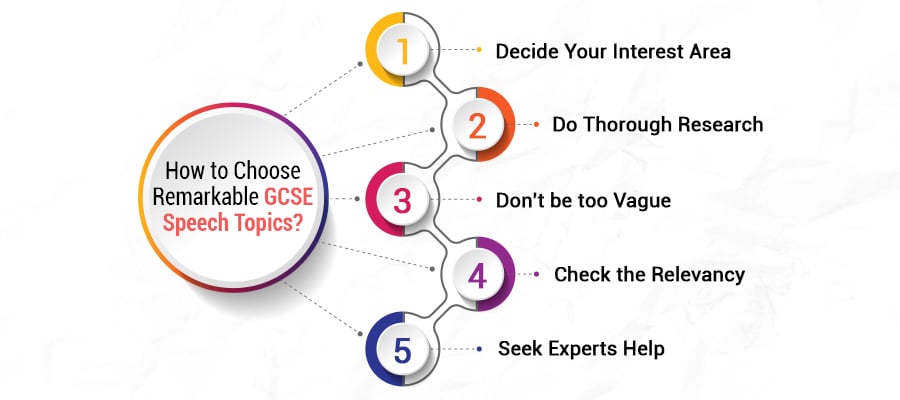
Are you facing issues choosing the best GCSE speech topics and want to know the best ways to pick ideas? We are here to help you. In this section, we will assist you in understanding what things you should keep in mind while selecting the latest and trending speaking and listening topics. Therefore, go through the pointers carefully to gain insightful knowledge.
It is a must to decide on a topic you are interested in for your GCSE speech writing, as this will help you write your document more effectively. Also, choosing the idea you are excited to work on makes that paper more captivating.
If you research properly, you can come up with better options for your topics because this will help you identify what ideas are trending. Moreover, if you do in-depth research, you can also understand the gap and come up with a unique theme.
While choosing GCSE English speech examples, you should remember that they should not be too narrow or too vague. Thus, adding too many thoughts to a single idea will make it challenging for you and the reader. So, you should never forget to keep one aspect while picking a theme.
Many students choose speaking and listening topics without checking their relevancy. So, the first thing you should do is go through the guidelines given by your university. This will give you an idea about what is relevant for your audience so that they can connect with your paper.
Many of you hesitate to use our academic writing services as they have expertise and have helped many students like you. So, if you think that you are facing issues with selecting the title, they will provide you with unique ones that can indeed help you score A+ grades by impressing your reader.
So, these are the few ways that you can consider when choosing exciting topics. Also, by this, you can impress your reader by coming up with the most unique title. However, if you lack time or are facing challenges in picking ideas, you can read the next part, where you will find a list of topics.
Do You Want Unique GCSE Speech Topics?
Worry Not! Our Experts Can Help You With Best Ideas
Ultimate List of 50+ Best GCSE Speech Topics
Choosing unique and catchy topics is crucial as this is the first thing that your reader will look at in your paper. Also, the professors make assumptions regarding the document once they see the idea selected. So, if you dream of scoring good academic grades, it is a must to pick an excellent title by seeking our assignment help . Are you confused with it? Read the list of ideas customized by our experts below for your write-up.
1. Should the government take climate change more seriously around the world?
2. Do social media have more disadvantages than advantages?
3. Explain the impact of technology on education: A double-edged sword
4. Which are better for learning: Traditional books or e-books?
5. What is the role of music in cultural expression and identity?
6. How do video games influence social skills and youth behaviour?
7. Importance of mental health awareness in colleges and universities
8. Describe the impact of globalization on local languages and culture
9. Should students be involved in shaping the education curriculum?
10. Significance of sports and physical education in universities
11. How will automation impact the job markets in the future?
12. Discuss the ethical considerations of animal testing in scientific research
13. Analyze the role of creativity and art in personal development
14. The effect of immigration on national economy and identity
15. Describe the importance of learning multiple languages in a globalized world
16. What are the effects of climate change on ecosystems and biodiversity?
17. Study the role of youth in social and political activism
18. The effect of tourism on preserving historical cultures and sites
19. The advantages and disadvantages of renewable energy sources
20. What is the significance of gender equality in education and the workplace?
21. Study the influence of celebrity culture on youth aspirations
22. Evaluate the role of education in combating inequality and poverty
23. What is the impact of fast fashion on ethical considerations and the environment?
24. What is the importance of space exploration in the modern era?
25. Discuss the role of media in shaping democracy and public opinion
26. What are the opportunities and challenges of urbanization in the 21st century?
27. The significance of preserving Indigenous languages and cultures
28. Understand the ethical implications of data privacy and artificial intelligence
29. What is the role of literature in understanding human emotions and experiences?
30. Your opinion on whether it should euthanasia be allowed in the UK
Also Read: Critical Thinking Essay: Meaning, Importance, Examples & How to Write
31. Should the government make the changes in the voting age?
32. Is nurture or nature more influential on someone's personality?
33. Speak for or against the motion, 'Donald Trump is a corrupt president.'
34. Are AI and robots turning against humans all over the world?
35. Are today's youth addicted to their mobile phones?
36. Discuss your favourite singer/ band
37. The death penalty should be reinstated: Speak for or against the motion
38. You could discuss cruelty to animals in travelling circuses
39. You could discuss a particular culture or country that interests you
40. Speak for or against the motion, 'Homework should be banned.'
41. Speak for or against the motion, 'Students shouldn't have to wear school uniform.'
42. Discuss technology addiction and reliance among young people
43. Discuss your favourite school subject in detail
44. Share your views/ opinion on feminism/racism/sexism
45. Discuss the difference in wages that men and women receive
46. Evaluate the different perspectives on the Second Amendment and the right to bear arms
47. What are the ethics of animal testing, animal cruelty, factory farming, and the rights of animals in society?
48. Study the ethical considerations surrounding physician-assisted suicide and euthanasia
49. Discuss the advantages and disadvantages of immigration
50. What are the pros? And the cons. of gun control laws?
51. Discuss some issues of social media that impact today's youth.
Hopefully, you must have chosen one topic for your paper by going through the. But now you are facing issues with how to give an impressive start to your GCSE speech. Worry not; in the next part, you can read the expert's tips that can solve your queries. Apart from this, if you face challenges with any other task, you can ask our helpers, "Can I pay for assignments to you?" However, for now, let's take a look at the tips.
Experts Tips on How to Start Your GCSE Speech
If you want to give an impressive start to your GCSE English speaking exam, it is crucial to know the tips that can surely make the beginning of your paper enjoyable. By going through this expert's tips, you can understand what you should keep in mind to give a captivating start. So, let's begin.
Start your writing with a captivating question. This will develop your reader's interest in your paper. Moreover, you must begin with a posing query that attracts your reader's attention. However, ensure that it is relatable to your paper.
If you introduce yourself through a story in the beginning, your readers can connect with you more easily. Also, this is the best way to create an impactful start, as your audience will feel or relate to your story and will read with more concentration.
The following expert tip is to begin your writing flawlessly and in a manner that has curiosity, suspense, and interest. By this, your reader gets connected and becomes eager to know what more is written in it. Your explanation should be in a way that the audience can imagine each scene.
Suppose you use powerful quotes that are relevant to your topic at the start of the paper. This will give an exciting beginning that can grab your reader's attention towards your paper. However, if you are still facing any issues, you can seek help from our experts any day.
So, these are a few tips that can be used to give a compelling start to your paper. However, if you are still struggling with your speech writing, you can read the next part of the blog or can ask our experts," Can you please do my assignment for me?". So, glance at it and understand how our experts can help you.
Lacking the Skill of Writing GCSE Speech?
Reach Out to Us and Receive the Finest Paper!
Still Confused with GCSE Speech Writing? Ask Us!
Hopefully, this write-up might have helped you solve many queries running in your head regarding GCSE speech. However, if you are still facing any issues with writing the paper, leave all your stress behind. Our Assignment Desk can help you with fantastic write-ups before the deadline. Also, this does not end here because if you seek coursework writing help, you can avail yourself of ample benefits. This includes original documents, 24*7 customer support, unlimited revisions and a grade 9 GCSE speech example. Therefore, our team of experts have delivered more than 4500+ write-ups, and by this, our customers have scored A+ academic grades. So, what are you looking for? Visit our website and place your order as soon as possible.
Try Before You Buy !
Get Free PDF Link Directly to your WhatsApp !

Great!! Sumsa Free PDF Template has been delivered on your WhatsApp Number.
Share Your Requirements Now for Customized Solutions.
Delivered on-time or your money back
Our Services
- Assignment Writing Service
- Essay Writing Help
- Dissertation Writing Service
- Coursework Writing Service
- Proofreading & Editing Service
- Online Exam Help
- Term paper writing service
- Ghost Writing Service
- Case Study Writing Service
- Research Paper Writing Service
- Personal Statement Writing Service
- Resume Writing Service
- Report Writing Service
To Make Your Work Original
Check your work against paraphrasing & get a free Plagiarism report!
Check your work against plagiarism & get a free Plagiarism report!
Quick and Simple Tool to Generate Dissertation Outline Instantly
Get citations & references in your document in the desired style!
Make your content free of errors in just a few clicks for free!
Generate plagiarism-free essays as per your topic’s requirement!
Generate a Compelling Thesis Statement and Impress Your Professor
FREE Features
- Topic Creation USD 3.87 FREE
- Outline USD 9.33 FREE
- Unlimited Revisions USD 20.67 FREE
- Editing/Proofreading USD 28 FREE
- Formatting USD 8 FREE
- Bibliography USD 7.33 FREE
Get all these features for
USD 80.67 FREE
RELATED BLOGS

How to Write a Dissertation Literature Review? Complete Guide

An Ultimate Guide to Correlational Research with Examples

How to Write a Character Analysis Essay? Outline and Steps
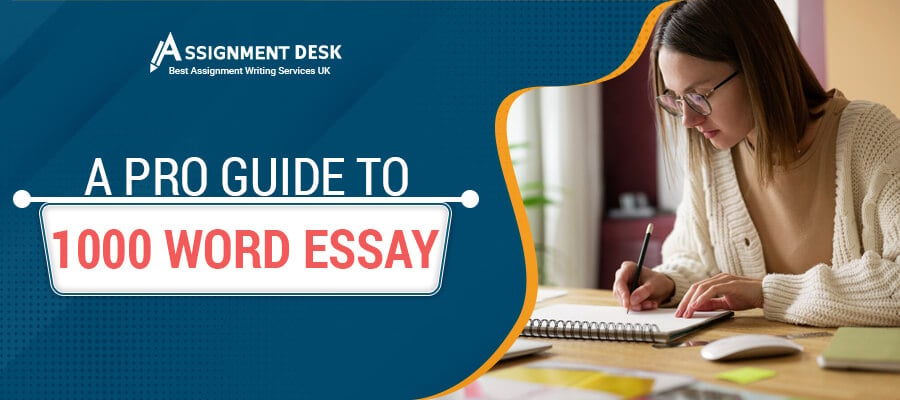
1000 Word Essay: Structure, Types, Tips, and Topics
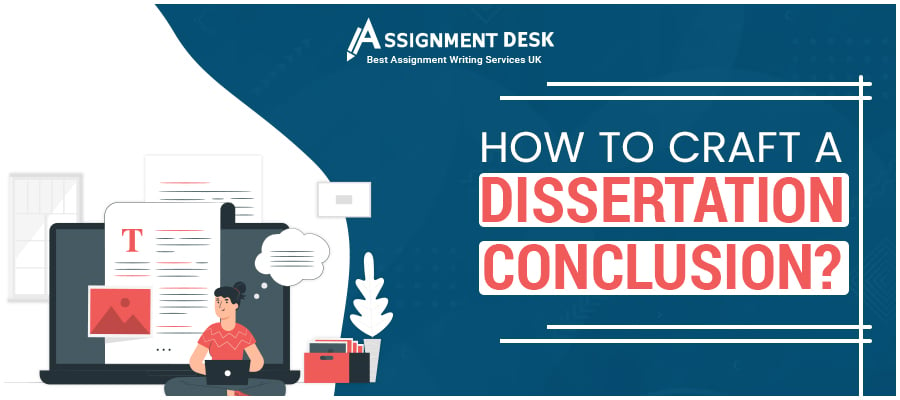
Learn All about Writing a Dissertation Conclusion

Top 100+ Capstone Project Ideas to Score A+ Grades
Professional assignment writers.
Choose a writer for your task among hundreds of professionals

Please rotate your device
We don't support landscape mode yet. Please go back to portrait mode for the best experience
We use cookies to ensure that we give you the best experience on our website. If you continue to use this site we will assume that you are happy with it. Know more
Calculate the Price
Professional Academic Help at Pocket-Friendly Prices!
Estimated Price
Limited Time Offer
Exclusive Library Membership + FREE Wallet Balance
1 Month Access !
5000 Student Samples
10,000 Answers by Experts
Get $300 Now
- International
- Education Jobs
- Schools directory
- Resources Education Jobs Schools directory News Search
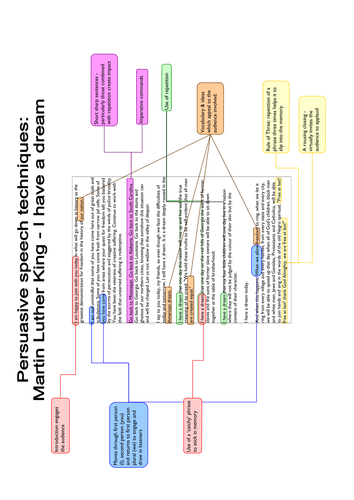
Writing a speech
Subject: English
Age range: 14-16
Resource type: Worksheet/Activity
Last updated
28 August 2020
- Share through email
- Share through twitter
- Share through linkedin
- Share through facebook
- Share through pinterest

Creative Commons "Sharealike"
Your rating is required to reflect your happiness.
It's good to leave some feedback.
Something went wrong, please try again later.
amie_campbell1
Thank you for sharing this. I really liked the writing frame
Empty reply does not make any sense for the end user
Julietteaharrison
Yes. Great resource. Thank you
geraldinedaly
Thank you for sharing! Great resource!
Thanks for sharing! Great content.
darlene_gedye
Thank you. There is some great content here to help students to structure and write their speeches. The power points will be very handy as will the variety of lead up lessons included. Thanks for sharing your resources.
Report this resource to let us know if it violates our terms and conditions. Our customer service team will review your report and will be in touch.
Not quite what you were looking for? Search by keyword to find the right resource:
How to Write a GCSE English Article
Whether your exam board is AQA, Edexcel, OCR, WJEC, or CIE, all students studying for their GCSEs need to know how to write an article, just in case it comes up in their GCSE English Language exam. This article will help you achieve top marks, whatever exam board you are following.

English Senior Content Creator
19 January 2024
- 1 . What is the GCSE English Language article?
- 2 . What are the key elements to include in a GCSE English article?
- 3 . How do I structure and write an effective article for my GCSE English exam?
- 4 . What are the best techniques to use in a GCSE English article?
What is the GCSE English Language article?
All English Language GCSE exam boards assess students on reading and writing, but it’s worth noting that there are two types of writing that you might be assessed on at GCSE: fiction or nonfiction. Fiction is writing involving invented or imaginary characters or events, whereas nonfiction is writing that is based on facts and information. So a novel or a play is a fictional text, while articles in a magazine, or a newspaper, are nonfiction texts.
In your GCSE papers , when you are asked to write fiction, this is often called narrative or descriptive writing. However, we are focusing on nonfiction, which is often referred to as writing from a viewpoint, directed writing, argumentation writing task, or persuasive writing. An article is a nonfiction text, and, each of these types of writing will be examined in different exam papers (for example for AQA, fiction is assessed in Paper 1, and nonfiction in Paper 2). For each exam board, the article question will be found in the following part of your exam:
AQA: Paper 2: Question 5
Edexcel: Component 2: Section B
OCR: Component 01: Section B
CIE (IGCSE): Paper 2: Section A
WJEC: Unit 3: Section B
It’s important to note that the nonfiction text you will be asked to write might not be an article, but a speech or letter. See our tips below (on “Form”) for more details on how to distinguish between these three types of nonfiction.
What are the key elements to include in a GCSE English article?
Before I was a teacher, I worked as a journalist, so I always loved teaching my GCSE students the art of article writing. Whenever you write an article, whether that is for a magazine, or a newspaper article, it is important that you consider three things:
It’s really important that you think about your audience before you begin writing your article. In the case of an article, the audience is just the specific readers you’re writing your article for. This will impact how you write your article. If you were writing for an online blog for teenagers, you would use a different tone, different vocabulary and a different level of formality than you would, say, for a magazine aimed at pensioners. Or vice-versa: I’m not sure people over 65 would understand some of the slang teenagers might use in a blog! Using the right type of language for the right audience is known as using the correct register, and getting this right will set you up for the highest marks on your exam.
Because examiners are assessing you on how well you persuade, argue or inform, it’s pretty important that you’re clear what exactly is it that you’re trying to persuade your audience of, or what you are arguing for. So it’s vital that when you’re making a plan (always make a plan when writing an article in an exam!) that you set out very clearly at the top what your viewpoint is. In your article, I would include your standpoint in the very first sentence or two.
Your exam question will often specify what type of article you are supposed to write: it could be a newspaper article (it might even specify what type of newspaper, for example, broadsheet newspaper, or tabloid), a magazine article, or a blog. While in real life the differences between these different types of article are sometimes large (when I worked as a journalist I never wrote the sensationalist headlines that you might find in a tabloid newspaper), when it comes to this piece of writing, you can treat them all more or less the same. Examiners want to see that you are aware of the form of writing you have been asked to complete. So this piece of writing should look different on the page to a letter, or a speech. Here are some great things to include in any GCSE English Language article:
Headings: otherwise known as a “headline”, this is the best way to alert the examiner - right from the start - that you are aware of the correct form of writing
A standfirst: A standfirst is a one-sentence summary of the article as a whole, e.g. “Writing an article at GCSE is challenging but following these tips will get you top marks”
A byline: The name of the author of the article. You can make the name up, and typically it goes right underneath the headline
Subheadings: These are optional, but as some magazines use them, it can be another reminder to the examiner that you’re writing the right kind of nonfiction
How do I structure and write an effective article for my GCSE English exam?
The first thing that I always, always said to my students when they were preparing to sit their GCSE English Language papers was “write less, plan more”. I taught the AQA English Language papers (and, as previously mentioned, teaching the Paper 2 exam was my favourite) for many years, and I always found that the students who knew how to plan an article most effectively did best on the final exam. Hopefully this isn’t new information to you, because I know teachers always harp on about planning, but trust me: examiners (I was one for years) don’t need to see pages and pages of writing to give out full marks: in fact, if the article is too long and not properly structured, it can actually lose marks.
So, how do you actually “write less, plan more”? Well, I always said to students that I would spend up to 30% of my time planning, and I would make sure I had my entire argument figured out before I wrote a single word on the page. This would include the facts and figures I would be using (my “evidence” for my argument), as well as my headline and standfirst.
What are the best techniques to use in a GCSE English article?
Lots of schools teach different acronyms to help you remember some of the best language techniques to use in a GCSE English Language article. These are different from the acronyms schools teach for the GCSE English Literature exam, but there is often some crossover. A great one I always taught my students was DAFOREST :
D: Direct address: by using pronouns such as “you” and “your”, you inevitably grab the reader’s attention, and involve them directly into your argument
A: Alliteration: often used in fiction writing, alliteration can also be a nice way to show the examiner that your article has been crafted with the reader in mind
F: Facts: remember, you are writing nonfiction, so it’s important to include facts and information (even if these are completely made up)
O: Opinions: nonfiction isn’t just a dry presentation of facts, however. Include your opinion to help create a sense of you as an author. This will also help you be more persuasive
R: Rhetorical questions: another technique that directly involves the audience in your argument
E: Emotive language: try using emotive anecdotes (these can also be invented) to create empathy in your reader
S: Statistics: again, another great way to remind the examiner that you know you’re writing nonfiction (make these up too!)
T: Triple: this is using three adjectives in a list, or three sentences that start with the same words
I do hope this guide has been useful. For more tips, step by step guides (including walkthroughs of each GCSE English Language question) and model answers, please visit the SME GCSE English Language pages.
Sign up for articles sent directly to your inbox
Receive news, articles and guides directly from our team of experts.
Written by Nick Redgrove
Nick is a graduate of the University of Cambridge and King’s College London. He started his career in journalism and publishing, working as an editor on a political magazine and a number of books, before training as an English teacher. After nearly 10 years working in London schools, where he held leadership positions in English departments and within a Sixth Form, he moved on to become an examiner and education consultant. With more than a decade of experience as a tutor, Nick specialises in English, but has also taught Politics, Classical Civilisation and Religious Studies.
Share this article
The examiner written revision resources that improve your grades 2x.
Cookies on GOV.UK
We use some essential cookies to make this website work.
We’d like to set additional cookies to understand how you use GOV.UK, remember your settings and improve government services.
We also use cookies set by other sites to help us deliver content from their services.
You have accepted additional cookies. You can change your cookie settings at any time.
You have rejected additional cookies. You can change your cookie settings at any time.
King's Speech 2024: background briefing notes
Read the briefing notes on the announcements made in the 2024 King’s Speech.
The King's Speech 2024: background briefing notes
PDF , 556 KB , 104 pages
This file may not be suitable for users of assistive technology.
Updates to this page
The attachment on this page has been updated.
First published.
Sign up for emails or print this page
Is this page useful.
- Yes this page is useful
- No this page is not useful
Help us improve GOV.UK
Don’t include personal or financial information like your National Insurance number or credit card details.
To help us improve GOV.UK, we’d like to know more about your visit today. Please fill in this survey (opens in a new tab) .

IMAGES
VIDEO
COMMENTS
When planning, remember to: Underline key words from the question and blurb. Underline the audience you will be delivering your speech to. Decide on your "voice" and point of view. Write a one-sentence statement that summarises your point of view. Note down the points you can develop to support your point of view.
Here, we'll delve into the speech structure and discuss how to structure a speech for maximum impact. A typical speech will consist of an introduction, body, and conclusion. Introduction: Capture attention and state your main point. Body: Build your argument or narrative with supporting evidence. Conclusion: Summarise the key points and ...
When writing a speech in an English exam, always stay focused on the topic you have been asked to write about. Never derail from the subject of the speech you are writing. This will make you lose marks. This is why it is so important to plan your speech before you begin writing it. Think through the structure you are going to use and stick to it.
The style of the writing (sentence structure and overall structure) is dynamic and effective Below you will find a detailed model speech in response to an example of Paper 2 Question 5, under the following sub-headings (click to go straight to that sub-heading): Writing a GCSE English Language speech; Structuring your speech
Buy my revision guides in paperback on Amazon*:Mr Bruff's Guide to GCSE English Language https://amzn.to/2GvPrTV Mr Bruff's Guide to GCSE English Literature...
How to Write a Speech - English Language GCSE Revision with Miss Adams Teaches...Revise how to format and structure a speech for GCSE examination with Miss A...
This will help you receive a better mark overall because your teacher is more likely to remember your speech. The best way to begin any speech is to introduce yourself. You will be doing the oral assessment in front of your teacher and possibly some of your classmates, so they do already know who you are.
How to write a persuasive speech? Persuasive speeches need a structure that allows the audience to remember their message and be motivated to act upon it. Having a key message and a peak or climax in a speech can create momentum, which excites the crowd.
How to write a GCSE English Speech: Your 2025 Exams Guide It's a part of the GCSE English Language syllabus that fills most students with dread… public speaking. But preparing for your GCSE English speech shouldn't be daunting! It's generally only five minutes long, and you can normally speak about…
Fantastic PowerPoint on writing a GRADE 9 SPEECH. Also comes with a podcast from an examiner. The resource looks at the following: GRADE 9 example Sentence starters SPEECH form SPEECH conventions DAFOREST Stylistic devices Lecturer tips Common mistakes SPAG
Writing from the 1st person: Use 'I' as you register to make the audience recognize that whatever you are saying is your opinion. Addressing the audience will help to increase engagement. The nouns you use should bring the audience into the speech and make them ponder how the argument applies to them.
The ways you use language and vocabulary when writing the words of a speech will depend on the audience the purposeand you are writing for ; for example, in a speech to a group of teachers and parents giving your views on a recent proposal, formal language is most appropriate. Tips for writing a speech . Language - think about: •
GCSE English Language speaking exam ideas related to school life. Your GCSE English Language speech doesn't have to be on a heavy, thought-provoking topic to still be good. As previously mentioned, the main idea of the component is to test your speaking and presentation skills as well as your researching skills.
This video talks through example speeches linked to the mark scheme. Contains aGrade 3, 4 and 7 response.
The GCSE speech writing includes an assessment of students' spoken language abilities. This assessment is vital in the GCSE exam, where you must prove your speaking and listening skills. Most students typically choose from a field of GCSE spoken language topic ideas and present a speech, followed by a discussion with the examiner, a crucial ...
Lessons designed to assist GCSE students with writing a speech. The first lesson generates some discussion and recognition of features of a speech, with the second lesson focusing on the students creating their own speech. This was designed for IGCSE but can be used for any sessions. Creative Commons "Sharealike".
AQA: Paper 2: Question 5. Edexcel: Component 2: Section B. OCR: Component 01: Section B. CIE (IGCSE): Paper 2: Section A. WJEC: Unit 3: Section B. It's important to note that the nonfiction text you will be asked to write might not be an article, but a speech or letter. See our tips below (on "Form") for more details on how to distinguish ...
Government activity Departments. Departments, agencies and public bodies. News. News stories, speeches, letters and notices. Guidance and regulation